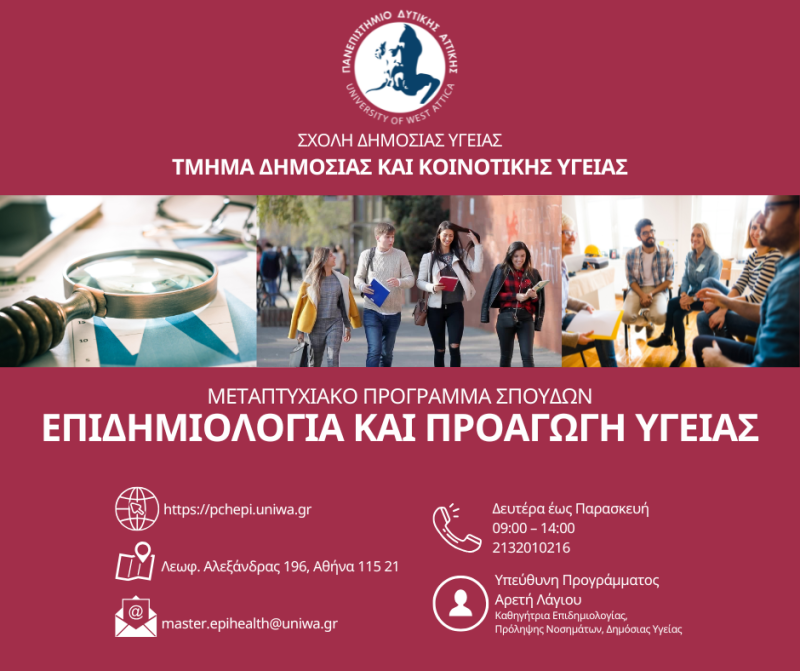Welcome to the Postgraduate Studies Program
The MSc in “Epidemiology and Health Promotion” of the Department of Public and Community Health, School of Public Health, University of West Attica, focuses on the highly specialized and innovative scientific field of “Βehavioural Εpidemiology”, regarding the application of the classical epidemiological approach and methodology in all stages of integrated, evidence-based and methodologically sound Health Promotion Programs.
Purpose of the MSc: The MSc program provides high quality postgraduate education in the innovative scientific field of Behavioural Epidemiology, with focus on the principles and methods of Epidemiology in the field of Health Promotion.
Main objective of the MSc: The MSc aims to link the classical epidemiological approach and methodology with the need for coordinated and evidence-based action in the design, implementation and evaluation of integrated interventions, programs and policies for Health Prevention and Health Promotion.

After successfully completing the MSc, students will have acquired scientific knowledge and developed skills to be able to:
- use available sources of epidemiological data
- use secondary data to evaluate health needs and resources
- collect valid primary data for the assessment of health needs and resources
- comprehend and critically approach the possibilities and limitations of epidemiological methods and sources and their impact in the field of Health Promotion
- formulate and test causal hypotheses about the relationship between determinants and health conditions
- design epidemiological surveys of preventive intervention at all levels of prevention (primary, secondary and tertiary) to address specific public health problems
- implement integrated interventions and preventive intervention programs at all levels of prevention to deal with specific public health problems
- evaluate integrated interventions and preventive intervention programs at all levels of prevention to address specific public health problems
- promote and enhance the participatory approach in the context of applied research and health prevention and health promotion interventions/programs
- provide evidence-based support and contribute to highlighting the importance of the participation of Health Promotion scientists and professionals either in working groups or in decision-makers of Public and Community Health, as equal members of the “Health Team”


